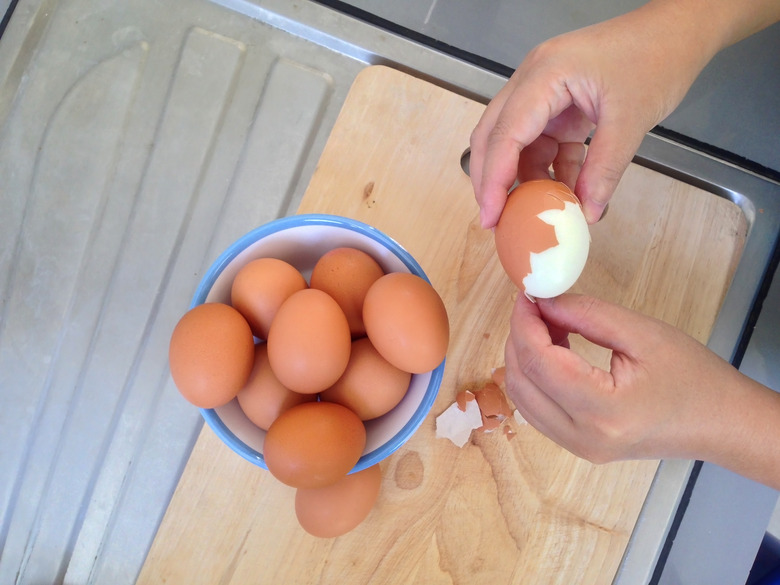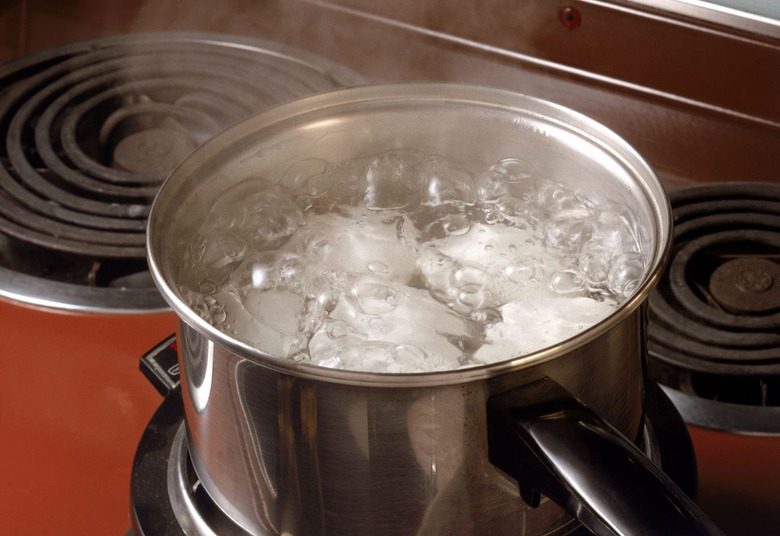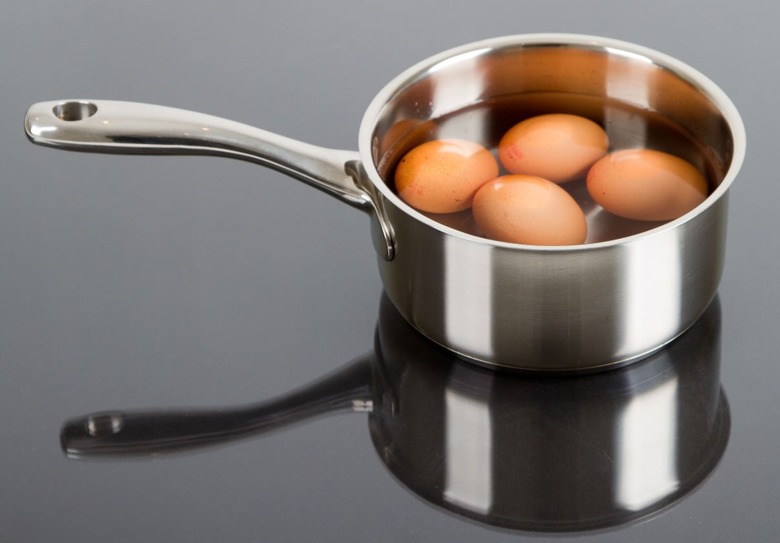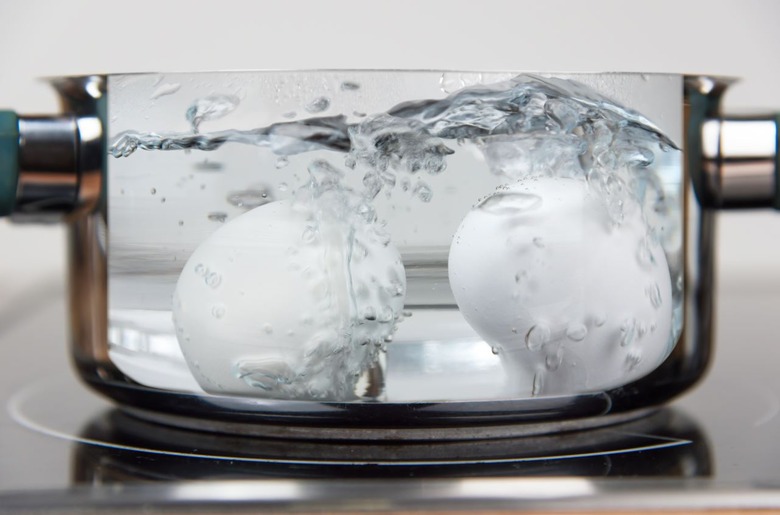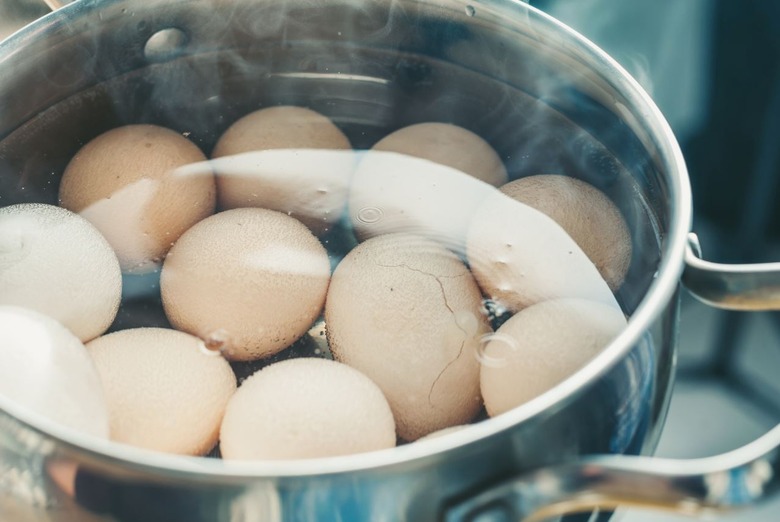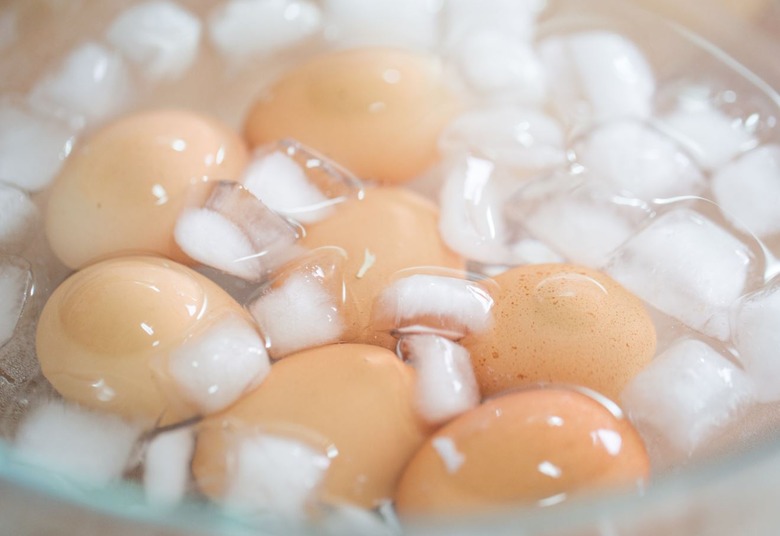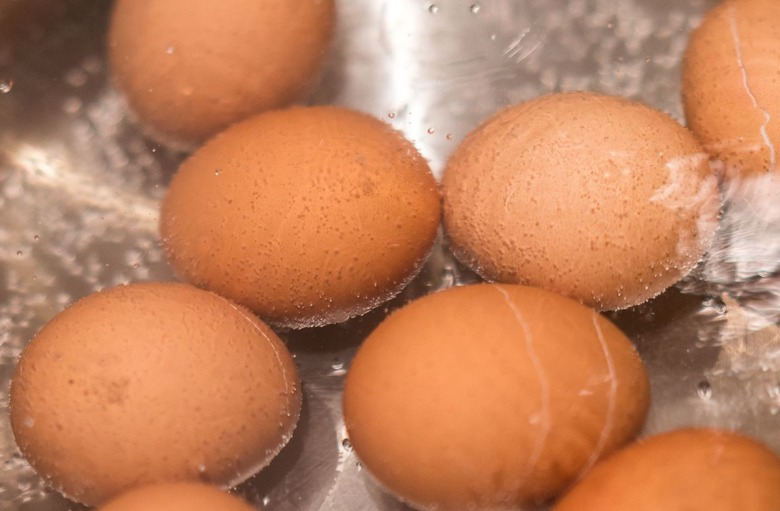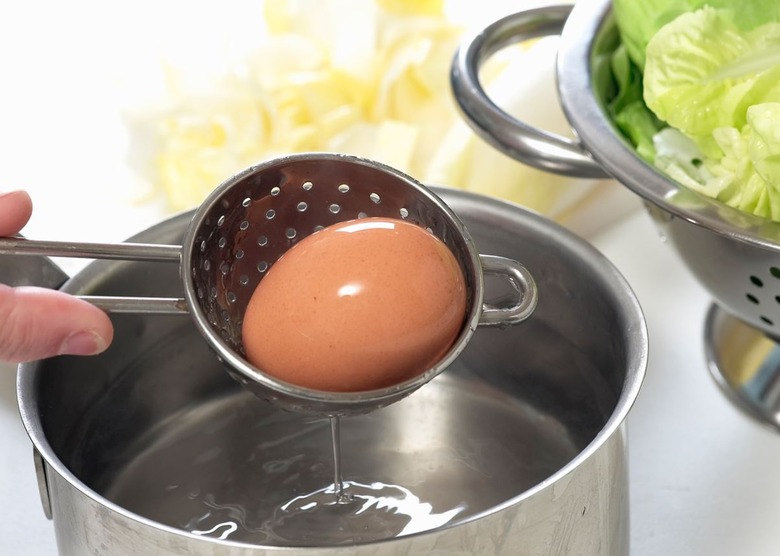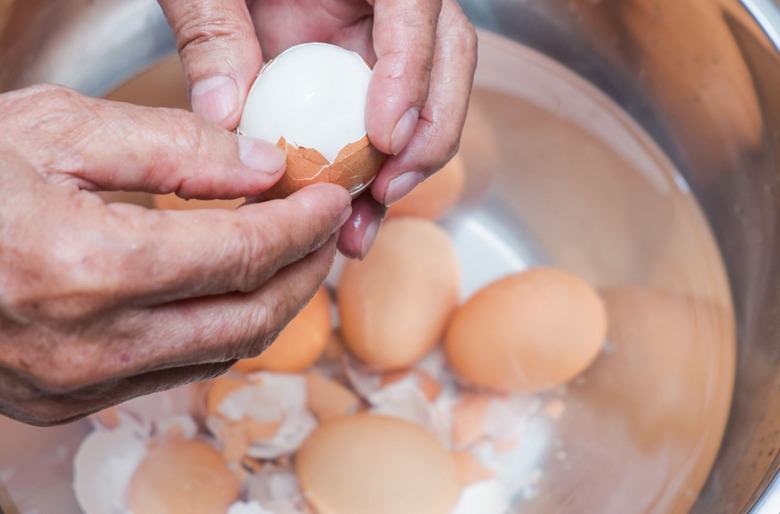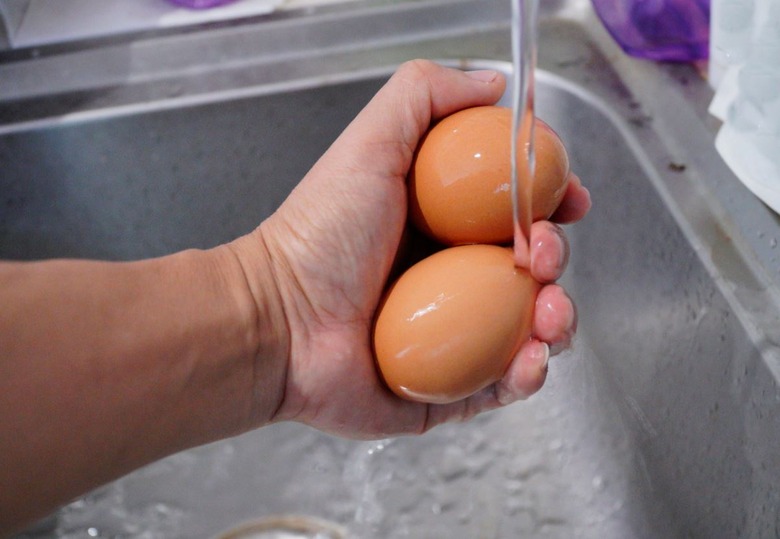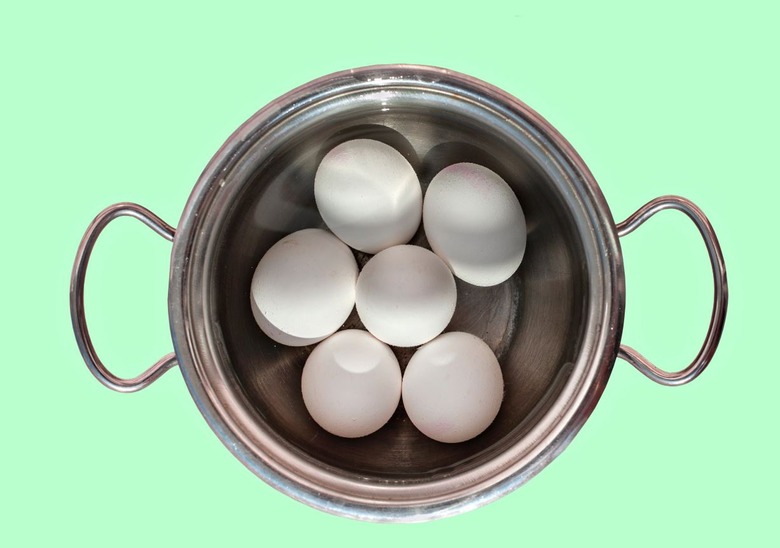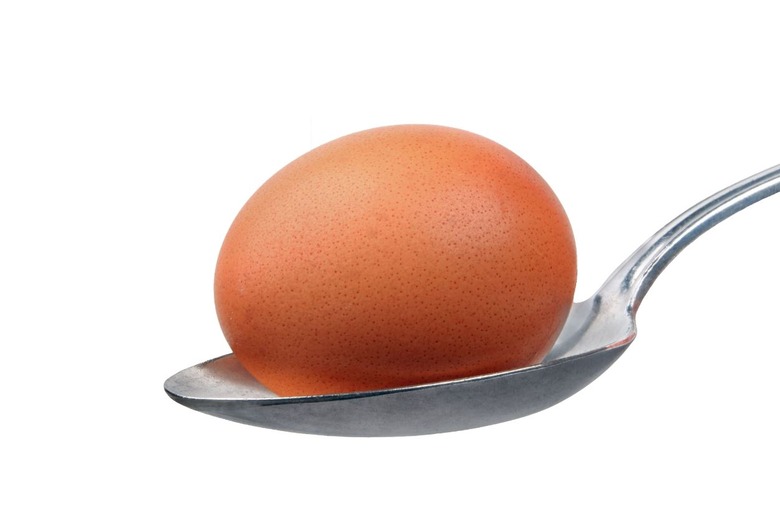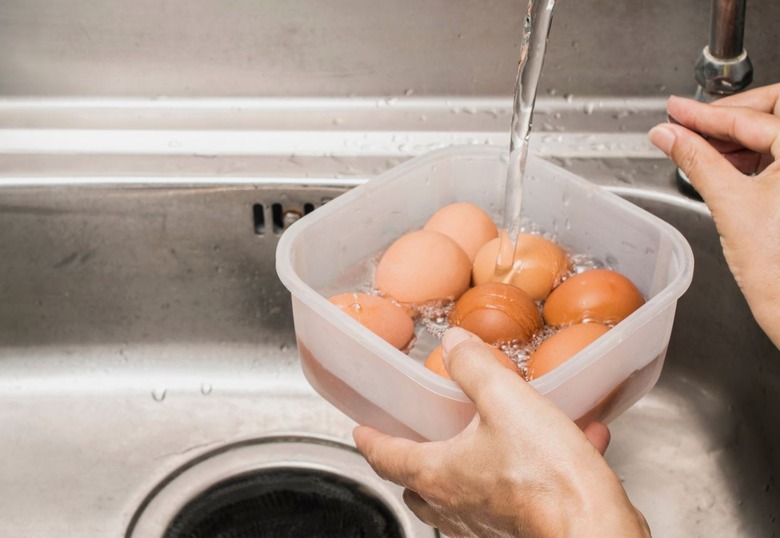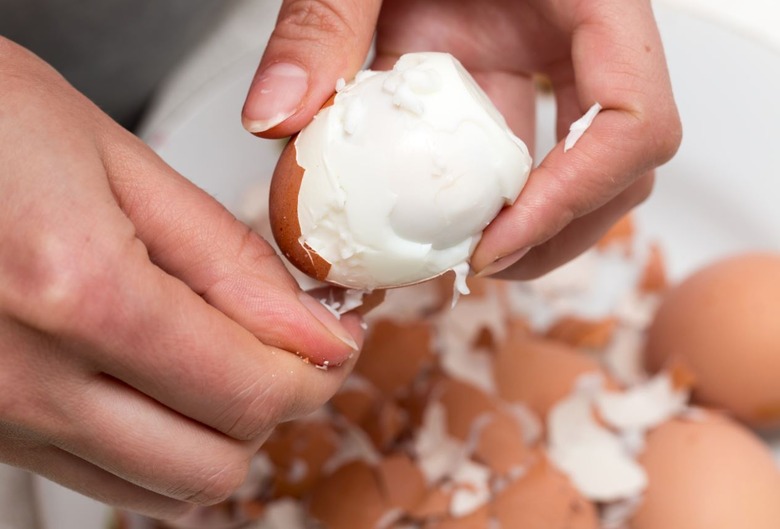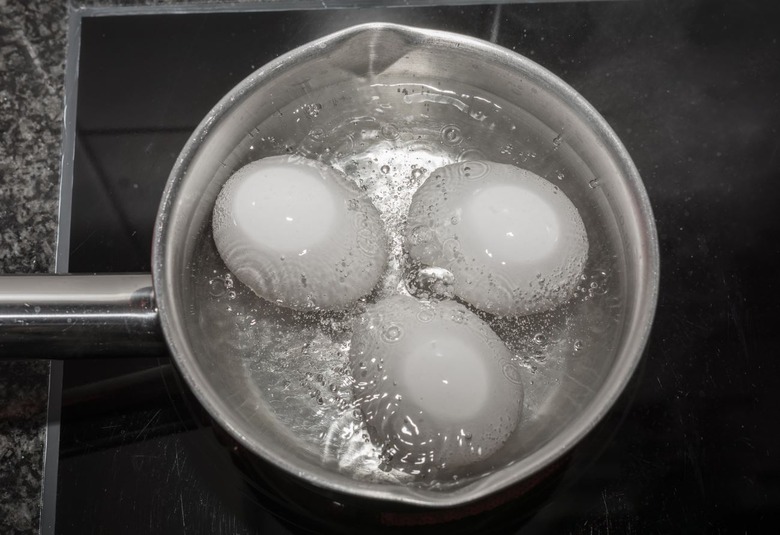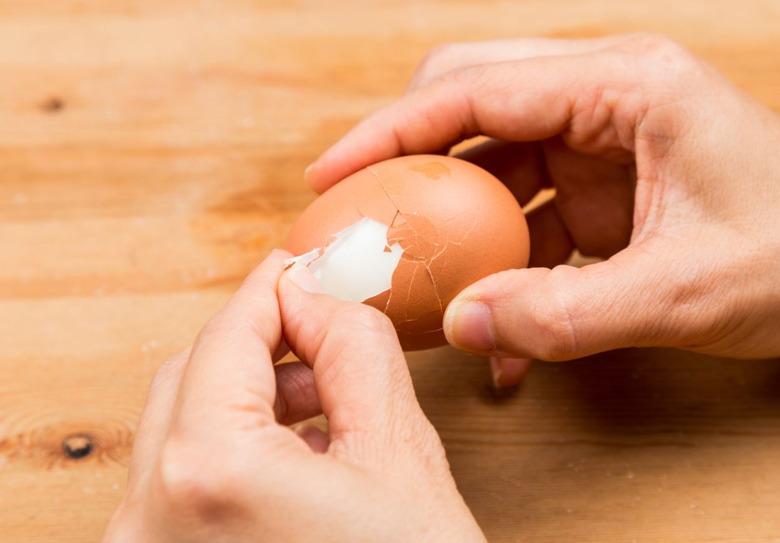How To Peel A Hard-Boiled Egg
Out of all the ways to cook an egg, properly hard-boiling and peeling an egg seems to leave folks befuddled. How long should you boil eggs for? And how do you peel hard-boiled eggs without ending up with an egg covered in more craters than the moon? Well, you've come to the right place. Here's the best way to cook a hard-boiled egg, the best and worst ways to peel it and a couple hacks for a quick and easy meal.
The best way to hard-boil an egg
Just like there's a perfect way to make scrambled eggs, there's also a way to boil them to ensure they're perfectly cooked. Before we can discuss the best ways to peel an egg, let's discuss the best way to boil them.
Step 1: Place the eggs in a pot
Place the eggs in a large pot in a single layer, cover them with cold water and bring the pot to the stove.
Bring the water to a boil
Over high heat, bring the cold water to a boil. Once a rolling, bubbling boil is achieved, turn the heat off and cover the pot with a lid.
Step 3: Cook the eggs
Leave the pot alone. Let the eggs cook for about nine minutes for medium-sized eggs, 12 minutes for large eggs and up to 15 minutes for extra-large. If you prefer your eggs firmer, let them sit in the water for longer; for softer eggs, remove them sooner. With a little trial and error, you'll soon figure out exactly what length of time in the pot cooks the eggs to your preference.
Step 4: Give the hard-boiled eggs an ice bath
Remove the eggs from the pot of water and place them in a large bowl of ice water; this will stop the cooking process and lower the temperature of the eggs. Bring the eggs down to room temperature.
Boiling hack No. 1
Just as baking powder is the secret to perfect scrambled eggs, perfect hard-boiled eggs need a little chemical assistance as well. Boil your eggs with a tablespoon of vinegar to every 4 cups of water. Vinegar dissolves some of the calcium carbonate in the shell, making it easier to peel. Baking soda increases the cooking water's alkalinity, which also makes eggs easier to peel.
Boiling hack No. 2
Using a thumbtack, poke a small hole in your eggs before boiling them. This lets in a small amount of water, which may also help the egg separate from the shell.
The best way to peel hard-boiled eggs
Roll the egg under your palm on the countertop in order to thoroughly crack the shell, then submerge the egg in a bowl of room-temperature water. Peel the egg while it is still submerged.
The running water method
You can also peel the eggs directly under running water after cracking the shell; the pressure of the water can aid in removing the shell.
The shaken eggs method
Before transferring the eggs to a bowl of ice water, carefully remove the eggs from the pot, pour out the water and return the eggs to the now-empty pot. Gently shake the eggs to crack the shells, and then place them in the cold water bowl. Complete peeling once cooled.
The spoon method
After the eggs have cooled, crack the wider end of the egg and insert a spoon under the shell. Rotate the egg while moving the spoon, and the shell should come off. This major cooking hack may not work every time, but it's pretty cool.
The water shake method
Here's an ingenious cooking hack: Place five cooled eggs into a flat-bottomed plastic container along with a small amount of cold water. Place the lid on top and gently shake the container. The shells should break away relatively easily.
Egg-peeling mistake No. 1: Using fresh eggs
It is best to use eggs that are just past the point of fresh, though not expired or bad. The outer membrane in a fresh egg tends to cling to the shell more than in an older egg, making the peeling process more difficult.
Egg-peeling mistake No. 2: Putting eggs into boiling water
Dropping eggs into a pot of boiling water isn't a great idea. If you drop them from too high up, they can crack when they hit the bottom, and you risk burning yourself if you drop them from just above the waterline. Eggs may be cheap, but you still don't want to waste them.
Egg-peeling mistake No. 3: Trying to peel hot eggs
Give your eggs some time to cool after boiling them. You can burn your fingers by trying to handle a hot egg, and as they cool, the shell will separate slightly from the egg, making it easier to peel. Once your eggs are perfectly peeled, you're free to turn them into deviled eggs, one of the many retro appetizers that need to come back.
More from The Daily Meal:
Unexpected Ingredients That Go Great with Eggs
Regional Breakfast Foods You Didn't Know Existed
The Best Breakfast Dish in Every State
